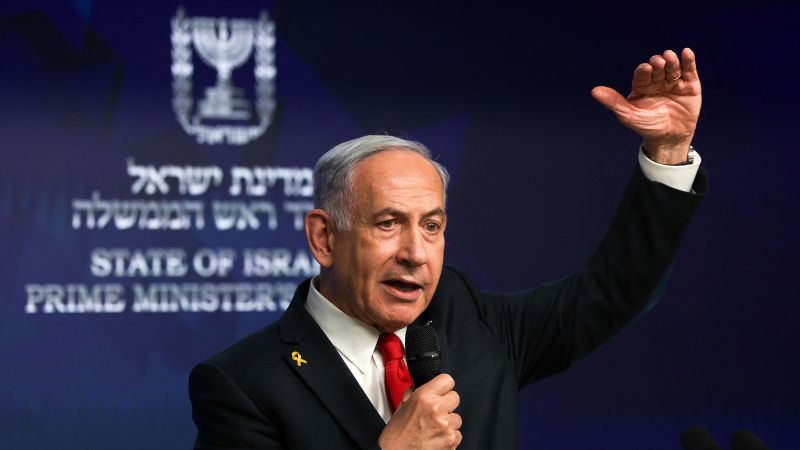Netanyahu's White House Visit: A Key Piece in Trump's Middle East Peace Puzzle?

President Donald Trump's ongoing efforts to broker a lasting peace in the Middle East have consistently placed Israeli Prime Minister Benjamin Netanyahu in a pivotal role. Netanyahu's recent, and notably private, meeting with Trump at the White House—his third since January—underscores the significance of this relationship and the complex diplomatic dance underway. While previous visits involved public appearances, this closed-door discussion signals a deeper dive into the intricacies of the region's challenges and potential solutions.
The absence of public events surrounding this meeting isn't accidental. It suggests a desire for uninhibited, candid conversations, free from the pressures of media scrutiny and public opinion. Trump has repeatedly expressed his commitment to achieving a historic peace agreement, and he views Netanyahu as a crucial partner in this endeavor. However, navigating the deeply entrenched conflicts and competing interests in the Middle East is an immensely difficult task, and Netanyahu's perspective is vital to any viable strategy.
Understanding the Stakes: Trump's Vision for Peace
Trump's approach to Middle East peace deviates from traditional strategies. He has demonstrated a willingness to challenge long-held assumptions and to pursue unconventional solutions. His recognition of Jerusalem as Israel's capital, while controversial, reflected a desire to acknowledge Israel's historical and cultural ties to the city. Similarly, his brokering of the Abraham Accords, normalizing relations between Israel and several Arab nations, demonstrated a commitment to forging new alliances and building bridges across the region. These actions, while polarizing, highlight Trump's ambition to reshape the geopolitical landscape of the Middle East.
Netanyahu's Role: Balancing Domestic Politics and Regional Ambitions
Netanyahu, facing his own domestic political challenges, must carefully balance his relationship with Trump and the broader regional context. His government's policies regarding settlements in the West Bank and the status of Jerusalem remain points of contention with the Palestinian Authority and the international community. However, he also recognizes the potential benefits of a successful peace agreement, which could bolster Israel's security and standing in the region. The private nature of the White House discussions likely allowed for a frank exchange of views on these sensitive issues.
What Was Discussed? Potential Outcomes and Future Prospects
While the specifics of the meeting remain confidential, analysts speculate that key topics included the ongoing tensions with Iran, the future of the Palestinian Authority, and the possibility of expanding the Abraham Accords to include additional Arab nations. It's likely that Trump and Netanyahu also discussed the challenges of countering extremist groups and promoting economic development in the region.
The outcome of this meeting, and the broader Trump administration's peace efforts, remains uncertain. However, the continued engagement between the two leaders underscores the importance of Israeli-American cooperation in addressing the complex challenges facing the Middle East. The private nature of the discussions suggests a serious commitment to finding a lasting resolution, even if the path forward is fraught with obstacles.
Ultimately, whether Trump can achieve his goal of brokering peace in the Middle East will depend on a multitude of factors, including the willingness of all parties to compromise and the ability to address the underlying causes of conflict. Netanyahu's role in this process will undoubtedly be critical, and his relationship with Trump will continue to be a key determinant of the region's future.






